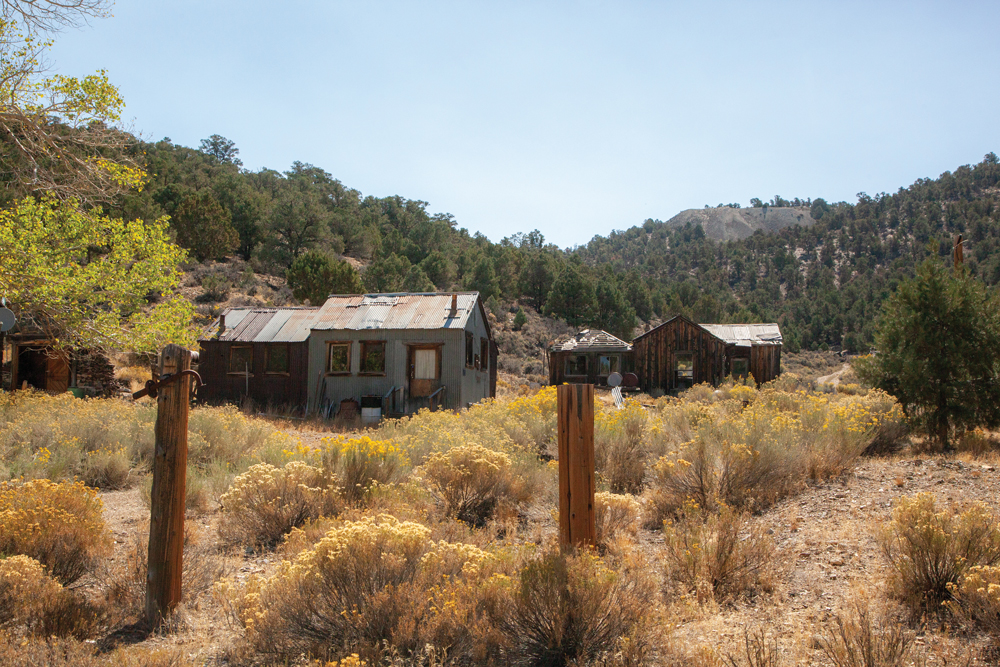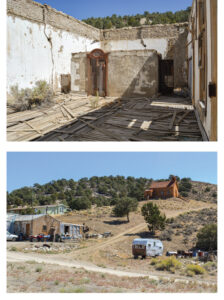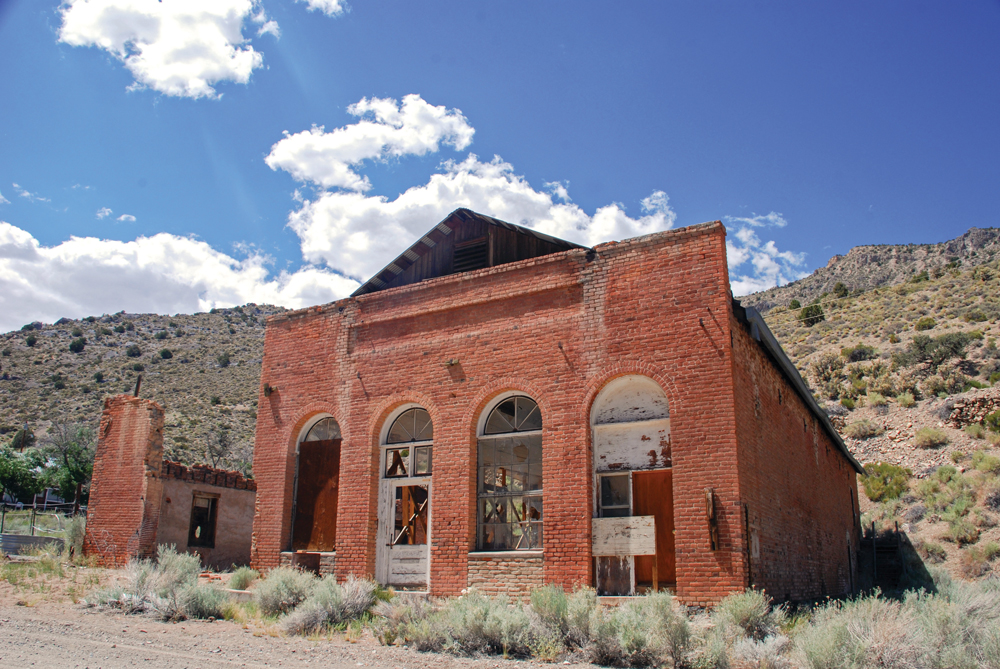The Ghost of Nye County
Spring/Summer 2025
Venture out to these boom-and-bust burgs of central Nevada.
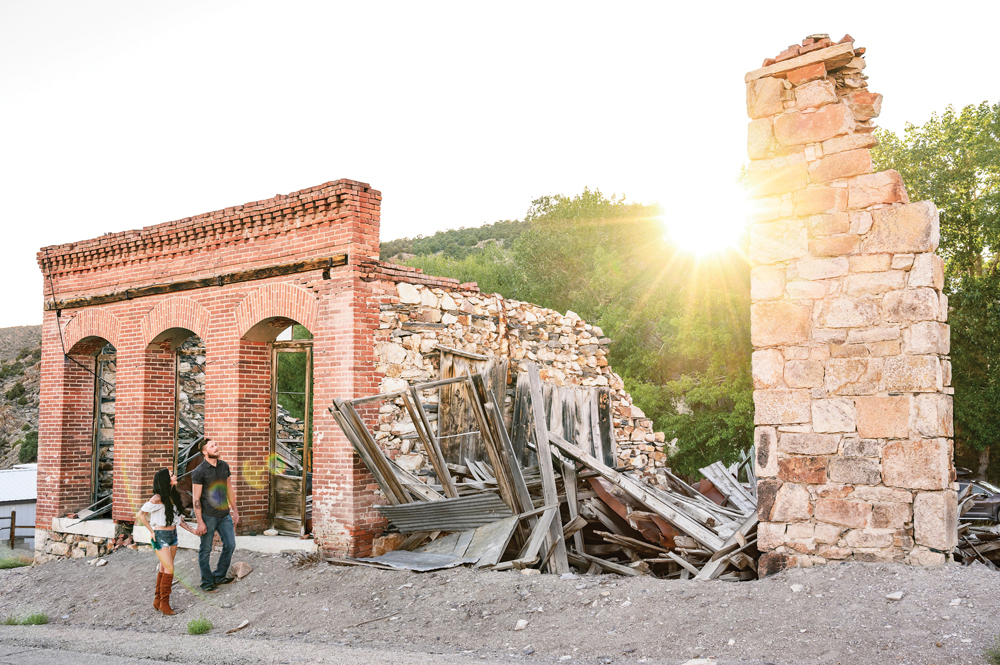
Nye County is a big place. If it were a state, it would be the 42nd largest—twice the size of Massachusetts. In addition to wide-open ranges and countless miles of dirt road, this area has a number of the nearly 600 towns that rose and fell in Nevada before the 1900s even had a chance to stretch its legs. While most towns bore fruit only for short periods, they literally left their mark on the state’s landscape. Many ghost towns have no residents, but they are still full of stories, if you listen carefully.
MANHATTAN
The small town of Manhattan—located about 50 miles north of Tonopah—has seen its fair share of booms and busts. It was founded in 1867 as part of the area’s silver mining boom, abandoned in 1871, and brought back to life in 1905 when 4,000 people poured into the region in the hopes of striking gold. In 1907, after San Francisco’s catastrophic earthquake and the debilitating stock market panic, the town pretty much gasped its last breath. Or so it was thought.
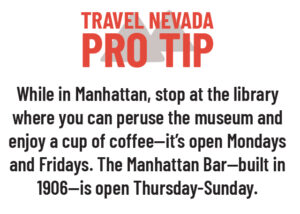 In 1909, the town was resuscitated once more by the mining industry, and it continued to produce ore until the 1940s. Today, large-scale mining is in full swing at Round Mountain, about 14 miles away. Although there aren’t many businesses still in operation, Manhattan has a leg up on nearby Belmont: It’s on the grid.
In 1909, the town was resuscitated once more by the mining industry, and it continued to produce ore until the 1940s. Today, large-scale mining is in full swing at Round Mountain, about 14 miles away. Although there aren’t many businesses still in operation, Manhattan has a leg up on nearby Belmont: It’s on the grid.
When visiting this fascinating living ghost town, note that about 125 people call the region home. The bank’s ruins remain a must-see, including the original safe in the rear of the building. It’s dangerous to go inside these ruins, but the safe can been seen from the street, and “The Nye & Ormsby County Bank, Manhattan, Nevada” is still distinguishable.
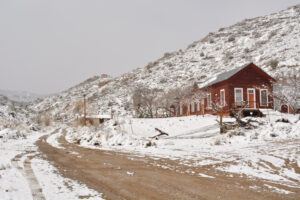 TYBO
TYBO
Initial gold discoveries in Tybo—about an hour northeast of Tonopah—can be traced to 1870, when American Indians are said to have revealed the location to prospectors. The district remained relatively stagnant until 1874, when the Tybo Consolidated Mining District was formed and the townsite established. Soon a post office, newspaper, saloons, and a Wells Fargo sprang up, but by 1880, the mines had all but played out. Revival attempts were made many times throughout the decades, but none stuck completely.
Today, a handful of impressively intact ruins are scattered throughout this once-booming town. These include the original hoist house and headframe of the Tonopah Consolidated Mining Company, the Wells Fargo office, historic milling sites, and old charcoal kilns.
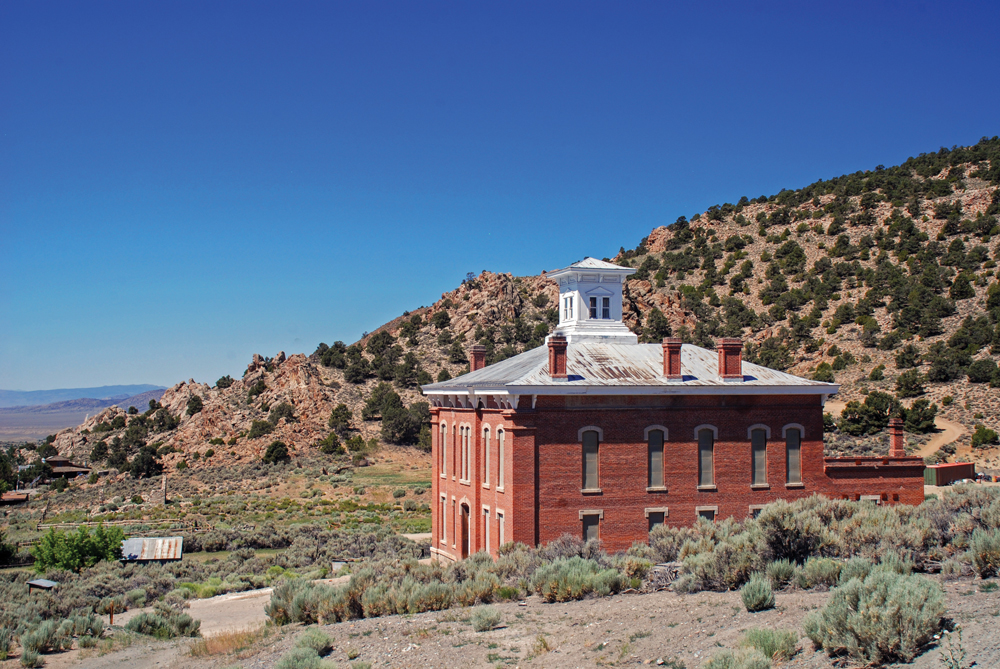
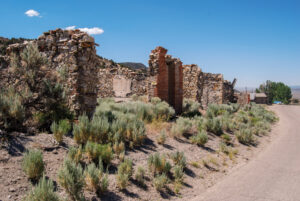 BELMONT
BELMONT
The once-bustling city of Belmont is one of Nevada’s iconic living ghost towns, offering structures and a rich history. In 1865, silver, copper, and other precious metals were discovered in Belmont and the rush was on. As the population grew, construction proceeded at a feverish pace. Soon the town had a post office, a school, four mercantile stores, a brewery, five restaurants, a bank, a telegraph office, a livery stable, and two newspapers. As Belmont prospered, it became the Nye County seat in 1867.
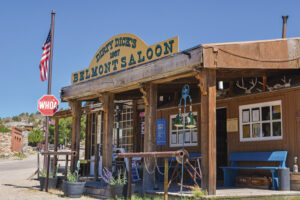 By 1887, the rich ore deposits of Belmont began to dwindle. Several mines closed, and the town experienced a rapid decline in population.
By 1887, the rich ore deposits of Belmont began to dwindle. Several mines closed, and the town experienced a rapid decline in population.  The mills stopped running, most residents left, and the last newspaper stopped the presses. By 1900, there were fewer than 100 registered voters.
The mills stopped running, most residents left, and the last newspaper stopped the presses. By 1900, there were fewer than 100 registered voters.
Located about 50 miles northeast of Tonopah, this town is still home to a handful of residents. Today, more than two dozen buildings stand, and a self-guided tour map is available online from the Friends of Belmont Courthouse.
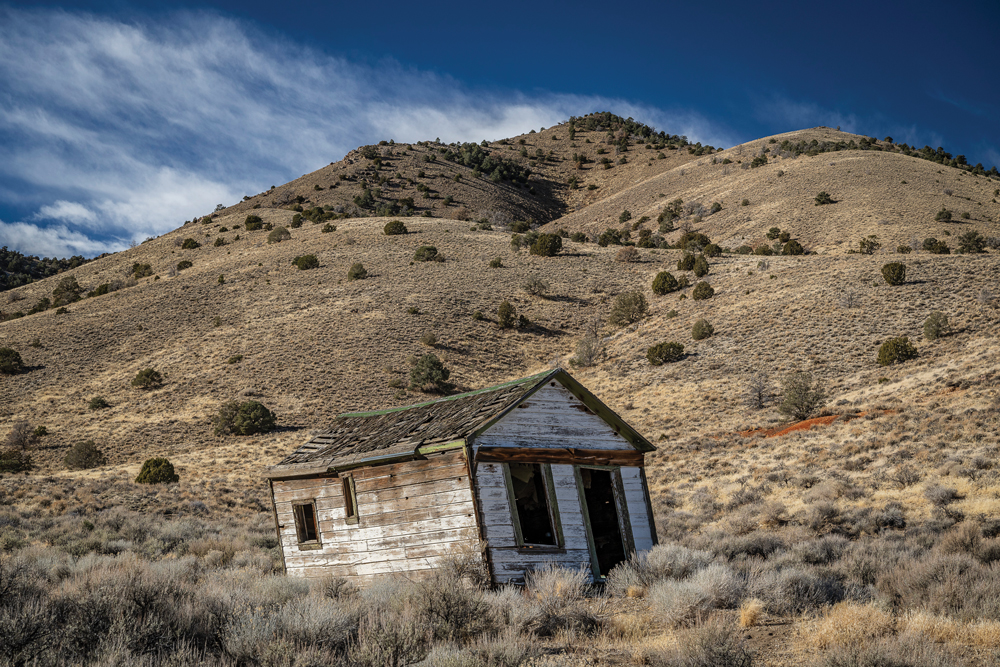
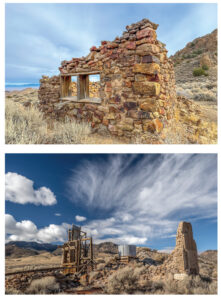
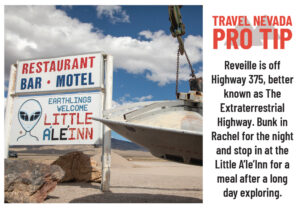 REVEILLE
REVEILLE
The town of Reveille is nearly as remote now as it was during its formation in 1866. Sitting about 40 miles northwest of where Rachel is today, supplies had to be shipped from Austin and took six days to reach town. At its peak, the district had 50 mines in operation and even a post office. Several million dollars of ore were processed in Reveille’s stamp mills before populations and production faded in 1880.
No one lives in Reveille today, but many stone cabin foundations and one solitary wooden cabin offer photo opportunities. About a mile further north, you can find old mining equipment left behind when the residents said enough and left town.

